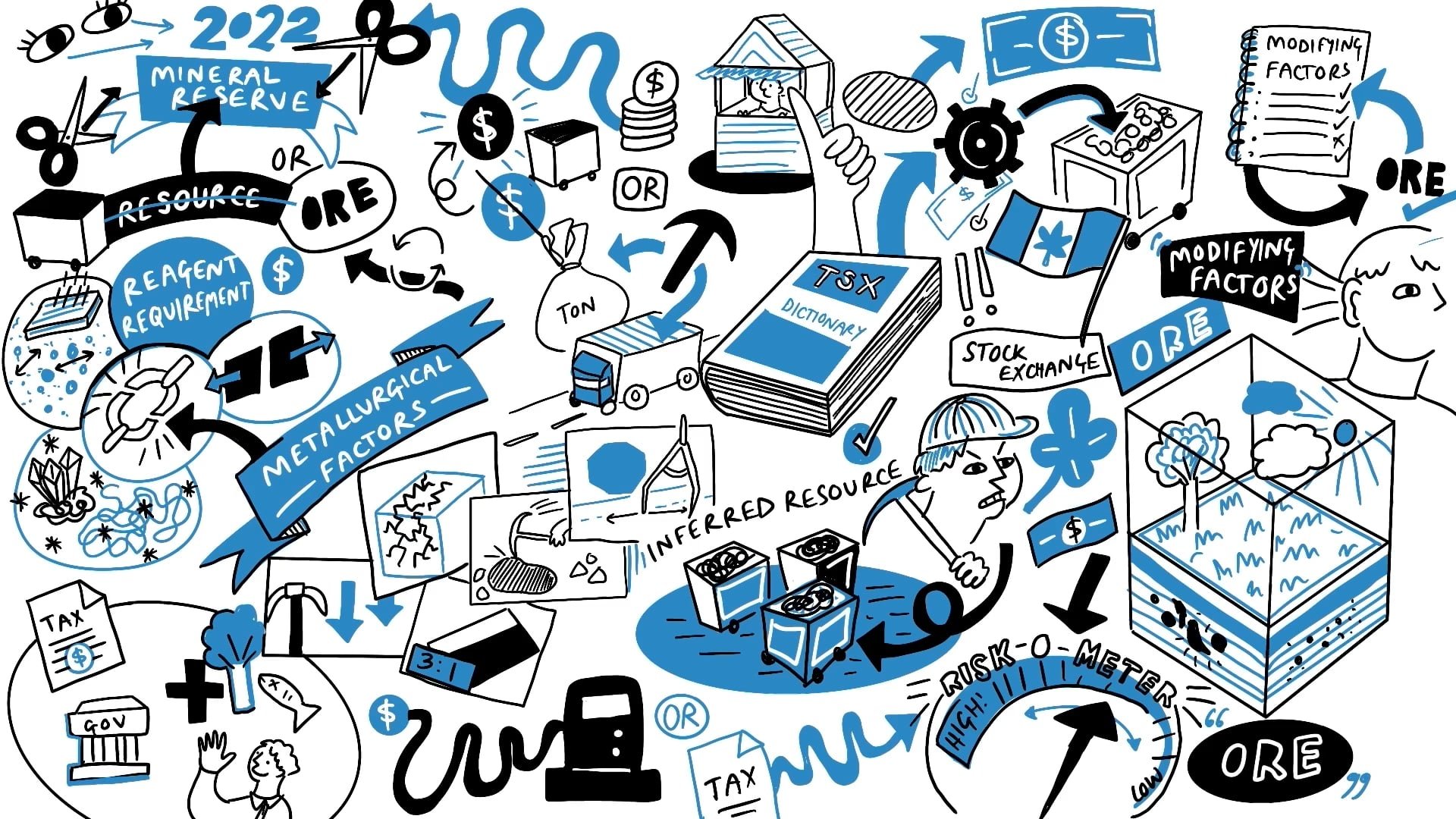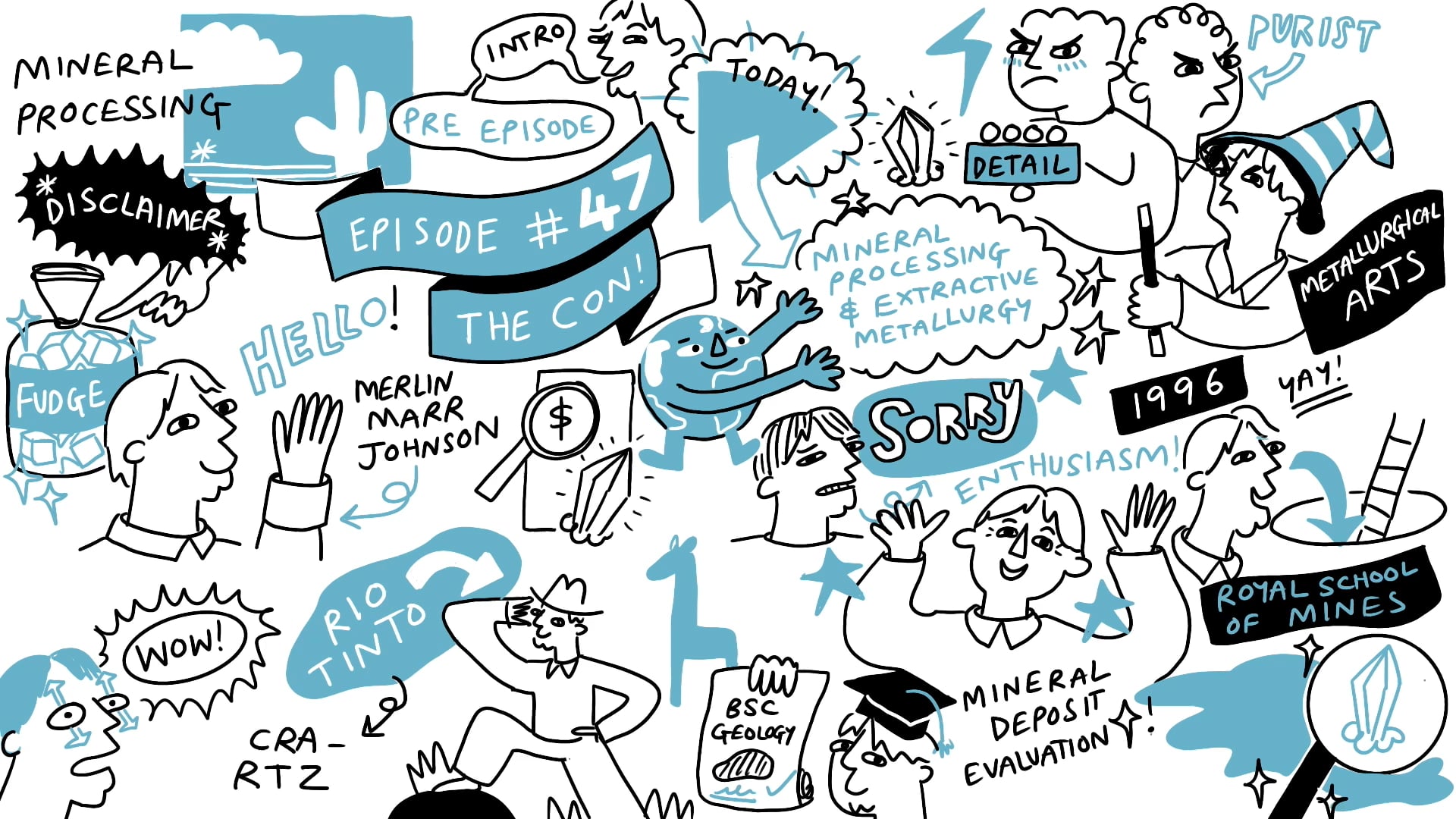Management: Delivery, Credibility & Confirmation Bias

More episodes
Transcript
The fourth point of assessing any management team I have put down as being credibility and that is established through the delivery of results. It's also in many ways the marrying of the marketing with the strategy, with the technical and the skill set, getting things done on time and on budget.
Establishing the credibility of a management team is perhaps the easiest thing to check and therefore it's perhaps the most useful thing to do. Because it's so important, I will repeat that everyone should check the credibility of the management team by cross-referencing promises with results. In short, look at what they say they were going to do and then see if they have done it. Remember that there are many ways that companies wriggle out of it. Companies can raise money to invest in X and then spend it on Y. They can offer excuse after excuse after excuse as to why production hasn't happened yet, or why promised reports, technical reports, feasibility studies and the like have not been completed or even worse completed but not released to the market.
A really important thing you can do as an investor is to go back over older news releases and old company reports and it's worth going back for almost as long as the current management team have been in place. Let's say a new management team has been there for five years or ten years and you go back and you look at the strategy and you look to see whether they've actually fulfilled what they said they were going to do.
The easiest way I've found of doing it is if you're going to go back on a multi-year basis is to pull out the annual reports. Go back four or five years and look at the annual discussion and the statements made by the executives and then look at the last few news releases. Look at all the headlines of news releases for at least 12 months and sometimes go back further. It's perhaps the best trail of information that a management team can leave you, the headlines of their news releases.
Quick note for any company out there that may be listening, it's so important that there's some way for investors to see all of the news releases, all of the headings in a single place. A simple single long list that can be scrolled through. For investors go to a website and skim your eyes down the list of news releases cursing any of the annoying companies that only allow you to review headings by year by year and scan down, and go back two or three years what you'll see is the capital raised, you'll see the bold promises and then the missed promises the great ideas and then the shift of ideas I've even seen quite often they talk about you know, they're doing drilling and drilling, drilling, exploration, capital raise. And then a month later results, oh we've missed. You know what's going on there don't you?
Anyway, I found this great quote by Mark O'Day of the Oxygen Group of Companies. He's a PhD geologist, a multiple company maker, and he talks about, as a CEO, he talks about people within his team. And he says, I learned particularly that if you get the team wrong, you have to change it right away. Don't live with a dysfunction longer than you must. You might have made the wrong choice. You can try and trim around the edges to make things okay, but in reality, in your gut, you know it's the wrong person and you've got to make that change. That's a really powerful quote and that's Marco Day talking about people within his teams. And I think you need to apply the same kind of approach in your analysis of the management team.
Perhaps there's an element of confirmation bias in all of our thinking here. Quite often as an investor you get to know a company. You invest time building up the knowledge about the company. You get to learn about the projects. You get to learn about the country, the jurisdiction, the whole thing, the strategy, where it's at, what's going to be happening in the next stage of development of the company. Eventually you get to the point where having invested lots of time you start investing the money. You are literally invested in the company. But the best thing you can do for your investment is to review it critically. Do not fall in love with it. There will always be another chance. The only real tool you have, particularly as a smaller shareholder unless you're becoming a significant stakeholder, is to buy or sell those shares. You can either invest more or you can hold, or you can walk away and take your money away. There will always be another chance, there will always be another company. And it's not worth waiting for management to change their way of doing things. The leopard won't change its spots. If you can see that the senior executive team is not delivering, or is, to put not too fine a point on it, lying to you about what they plan to do, and they're not reaching those goals, then I would say walk away. Look at the strategy. What do they say they're going to do on an annual basis? Over a two year, one or two year, possibly three or four, have they actually delivered on their strategy?
Now, you know, I work in the resources sector, it can be tough. Remember that it can actually take a year or two for things to play out. We've just seen with the coronavirus, you can lose a few months of work here or there. Or if you don't get a license that was promised to you, it can take you a year to get your permit organized or two years. It can take a time to sort out your drilling program. It can take time to pan out. But that process needs to be well communicated and it needs to be well understood by the market. People don't like being kept in the dark.
Another particular bugbear is when management teams tell the market what they think the market wants to hear. So they're trying to project a positive case for the company and they don't tell it as it is. That for me is an immediate loss of credibility. If the CEO or the president bigs up the company to turn it into something which is more investable but actually overstates where they're at, for me that's a major problem. I've often seen senior management of companies explaining to the market really what the market wants to hear or perhaps really what they, the management, want to hear themselves. In a sense, they're not trying to lie to the market in a malicious way. The person that they're most lying to, the person they're lying to most of all is themselves. The typical mistake is to say, we're going to have a feasibility study completed in four months, because that's what they want to hear. They themselves want to hear that. Or they're gonna say, we're gonna be in production in two years, because they want to hear that. And they think that's what the market wants to hear as well. Actually, if you analyse what the benchmark timelines are, what the industry typically takes to complete the work that's needed to complete a feasibility study or build a project into production, it's completely different to what the management is saying to the market. That's not because the management hasn't been through feasibility studies and haven't been through the construction phase of an asset. It's because they're trying to instil confidence into the market. They're trying to put the best side of the company forward and they're talking about being positive and they're talking about getting goals done in a reasonable timeframe and being a go-getting company. But for me, all that does is undermines credibility.
It's always much more important for a senior executive to know exactly how long things take. And then you've heard it time and time again, best thing they can do is to under promise and over deliver. And the thing that really undermines credibility and is the weakness of management, and it's the easiest thing to measure is did they do what they said they were going to do with the timeframe and the budget that they said that they were going to do it within. You as an investor can go back and you can look at all of that because it's in front of you in the financial reports and on the news releases on the pages of their website.
So I hope that's given you my thoughts on what differentiates management. There have been two quite long wordy sections, but perhaps in conclusion, I can say that just as a reminder, we're always told that management is the most important thing, but it's also very subjective. I would say stay objective and look for key elements:
Look for a senior team member doing coherent, intelligent marketing and doing it well. The person needs to be honest and compelling, relentless and persistent and clear about the strategy. And you need to be honest with yourself, dear investor, when assessing this.
Investors need to be comfortable that companies have got a very good technical team making sure that milestones are met. Credibility is absolutely key.It's the only thing that investors can really monitor subjectively when they are looking at management.
Final point is that investors should cross-check. They should do their own homework. Do not fall in love with the company you're invested in. If it's the same story being repeated and it's the same team saying the same story, walk away. There needs to be change. Either the strategy needs to change or the team needs to change. If neither of those things happen and they're not delivering what they said they're going to do, you as an investor needs to change. You need to walk away.
Finally, I should say that when I was putting these two sessions together on management, I ended up, and I realised that I've just been discussing executive management. These are the people that run the day-to-day of the company, and in most cases the CEO or the MD is the architect and the practitioner of the company culture and the strategy, and they're the dominant figure that features in any analysis. That's all well and good as far as it goes, but what I have not covered is a commentary on the board of directors, and I belatedly realise that this is an omission.
So once the run of Con episodes is finished and I've got through the subjects that I want to get through, I'm going to add a separate episode discussing the importance of boards when looking at a company. There's plenty more to be done before then though, I will come back to board directors I promise. Thank you.









































.jpg)
.jpg)
.jpg)
.jpg)















